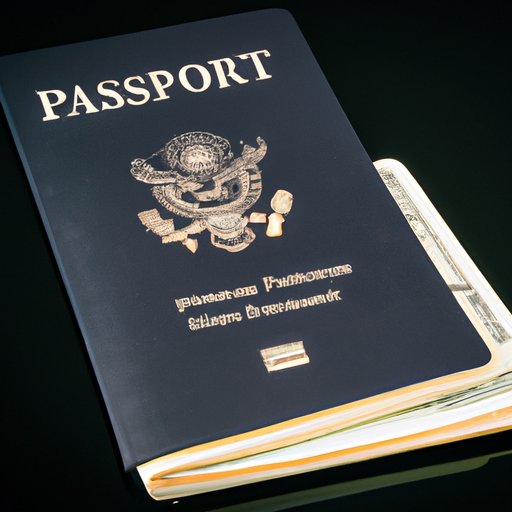
I. Introduction
If you have been convicted of a felony, you may be wondering if you are eligible to obtain a passport. A passport can be a key document for travel and necessary for work or family obligations. This article aims to provide information and tips for navigating the legal system to obtain a passport if you have a criminal record. By the end of this article, readers will have a clear understanding of the legal process and the challenges that come with obtaining a passport.
II. The Truth About Getting a Passport with a Felony Record
Federal law permits felons to apply for passports. Having a criminal record does not automatically disqualify you from receiving a passport, but there are specific situations where you may be denied. These factors include outstanding warrants, debt owed to the government, or being on parole or probation. Additionally, the State Department may deny your application if you are a flight risk or considered a threat to national security. It is important to fully understand the laws and regulations surrounding passport eligibility for felons.
There are common misconceptions about obtaining a passport with a felony record. One of them is that felons cannot travel outside the country at all. While it is true that some countries may deny entry to felons, the State Department cannot stop a convicted person from leaving the United States. The issue lies in returning to the country – without a passport, you will not be able to re-enter the United States.
III. Breaking Down the Process: Obtaining a Passport with a Past Felony Conviction
Despite having a criminal record, you can still apply for a passport. To apply, you must visit a passport acceptance facility in person. You will need to complete the application form (Form DS-11), provide two recent passport photos, and show proof of identity. The State Department accepts several forms of identification including a previously issued passport, driver’s license, military ID, and other government-issued identification. You may also need to complete a fee payment and provide proof of citizenship.
If you have a past felony conviction, you must disclose this during the application process. The State Department will review your application, which could take several weeks. The State Department may be hesitant to issue you a passport if they have any concerns about your potential flight risk or that you will not return to face legal obligations in the U.S.
IV. Can You Travel Abroad with a Felony? The Passport Dilemma
Traveling abroad with a felony can be challenging. Some countries may deny entry to felons or consider them high-risk visitors. As noted earlier, obtaining a passport is necessary for international travel, so obtaining one as a felon is important. To ensure the most hassle-free travel experience as a felon, you may want to research which countries will allow entry prior to booking travel plans. Additionally, it is essential to maintain a clean record and comply with all applicable laws and regulations.
V. Navigating the Legal System: How to Apply for a Passport with a Criminal Record
If you have been convicted of a felony, the criminal justice system may have an impact on your passport eligibility. Some court orders can impact your passport eligibility, such as being on probation or parole. It is crucial to understand all legal obligations and work with your probation or parole officer to fulfill all necessary requirements.
If you have an outstanding criminal warrant or owe any child support, it may be difficult to obtain a passport. The State Department may deny your application or revoke any existing passport. It’s essential to resolve any outstanding warrants or legal obligations before applying for a passport.
VI. The Impact of a Felony on Your Passport Application: What You Need to Know
Several factors can impact a felon’s passport application. Specifically, child support payments may prevent you from obtaining a passport. If you owe more than $2,500 in child support payments, the State Department may revoke your passport. Additionally, there may be limitations on your passport if you owe back taxes or money to the federal government. If you are in default of a federal loan (such as student loans), then you may not be eligible for a passport.
VII. Overcoming Obstacles: Tips for Applying for a Passport with a Felony Conviction
While obtaining a passport with a felony record can be challenging, it is possible with a little determination and patience. It is recommended to contact legal counsel before starting the process to ensure that all legal obligations have been fulfilled. Once you’ve completed all legal obligations, gather all necessary documents before filling out the passport application. Be truthful and provide as much information as possible about any previous criminal convictions. Doing so may lessen the likelihood of the State Department denying your application.
VIII. Conclusion
Obtaining a passport with a felony conviction can be a difficult process, but it is possible. It’s crucial to fully understand the laws and regulations surrounding passport eligibility for felons. If you want to travel internationally, it’s important to maintain a clean record and comply with all applicable laws and regulations. Be honest and provide as much information as possible when completing your application. With patience and determination, you can obtain a passport and travel abroad.
If you have further concerns or questions about obtaining a passport with a criminal record, it’s best to seek legal counsel before beginning the application process. Remember, all cases are unique, and it’s essential to comprehend the legal matters that could affect your passport application.




